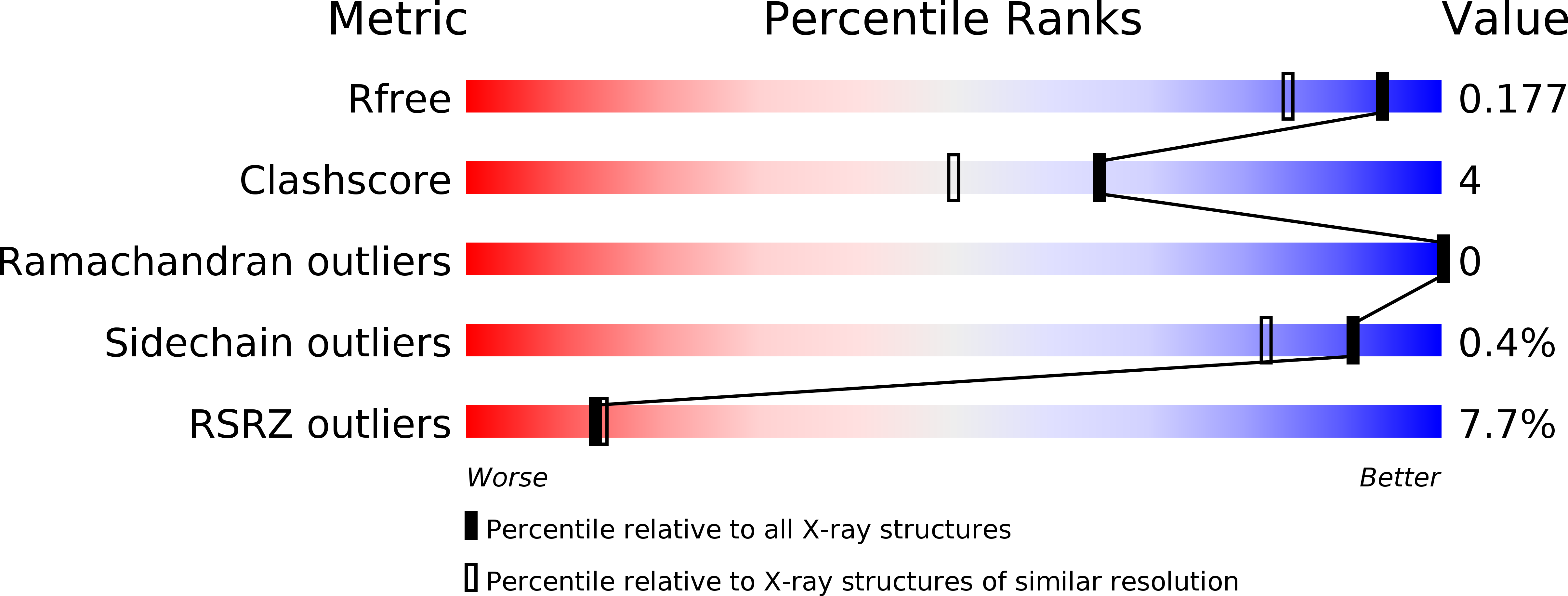
Deposition Date
2014-09-23
Release Date
2015-03-18
Last Version Date
2024-05-08
Entry Detail
PDB ID:
4V12
Keywords:
Title:
Crystal structure of the MSMEG_6754 dehydratase from Mycobacterium smegmatis
Biological Source:
Source Organism(s):
MYCOBACTERIUM SMEGMATIS (Taxon ID: 1772)
Expression System(s):
Method Details:
Experimental Method:
Resolution:
1.50 Å
R-Value Free:
0.17
R-Value Work:
0.15
R-Value Observed:
0.15
Space Group:
P 41 21 2


